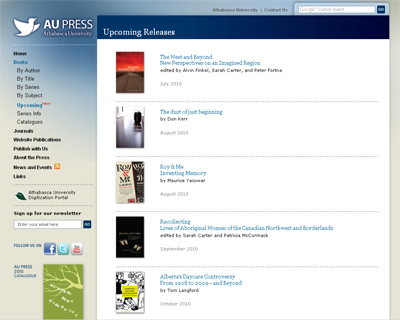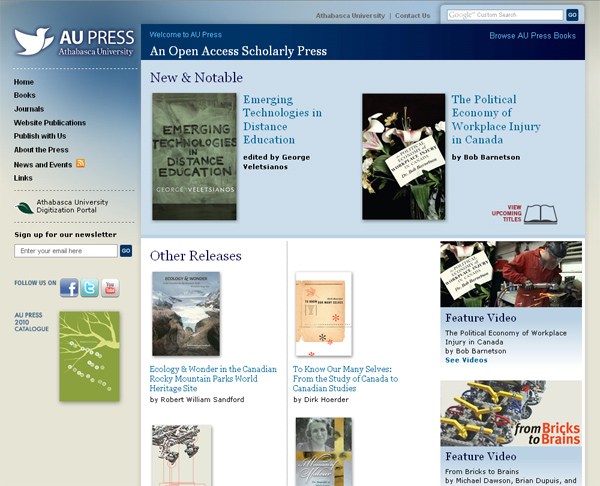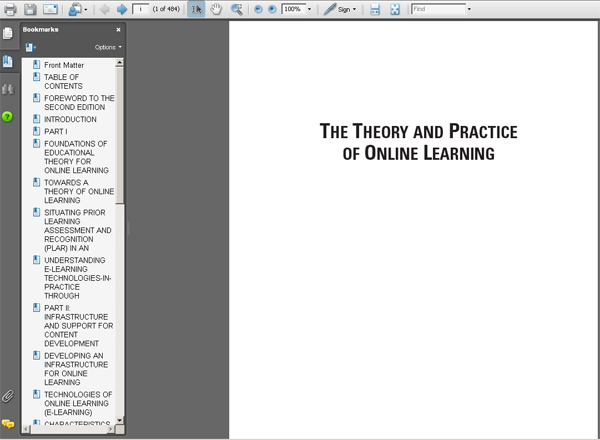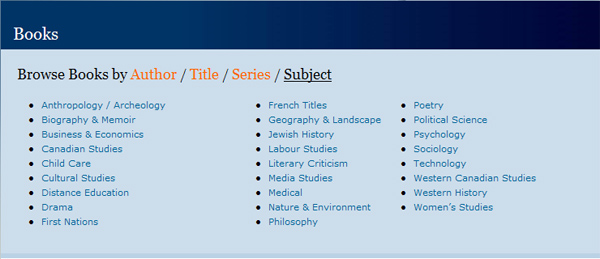Librarians and scholars proposed the concept of Open Access in the 1990s: Intellectual material will be available for all to read and use or re-use, without cost. There are usually some limits to the open-access release as practiced by university presses such as disallowing commercial sharing and derivative works — and requiring author attribution (giving credit to the original authors).
This idea, in 2010, has gained a lot more traction in higher education. Open-source software has emerged from university environments. Whole-course contents have been made available in an open-source way to make higher education more accessible for the masses, starting with the Massachusetts Institute of Technology Open Courseware project. Various grant funding agencies now require open licensing of all research results before grant funds are disseminated, due to citizen advocacy groups pushing for public access to the findings from federally funded research.

University presses are using electronic publications to extend their reach and reputations; they are also finding e-publications a strategy to sell more books. Some university presses have made a part of their holdings available for open access — with a focus on works that have already gone out-of-print (and sometimes, are already in the public domain).
Others release books in print, digital, and audio formats. There are open monograph presses and open journal systems — with all contents available for free download and use. Some presses offer segments of books for open access and withhold the rest in order to encourage sales.

Athabasca University Press (AU Press) is the first to launch a peer-reviewed scholarly press to allow open access to all publications from its website. All of its contents are released under Creative Commons licensure. The press is a division of Athabasca University, one of the big-name universities in Canada that offers online learning.
Some recent books that the AU Press has published that have implications for e-learning include the following (go to the links below and then the “EBook” tab to the place where you can download the free and complete text in PDF format):
- Dietmar Kennepohl and Lawton Shaw’s “Accessible Elements: Teaching Science Online and at a Distance” (2010)
- Terry Anderson’s “The Theory and Practice of Online Learning” (2008)
- George Veletsianos’ “Emerging Technologies in Distance Education” (2010)
(link not yet available from the publisher) - Mohamed Ally’s “Mobile Learning: Transforming the Delivery of Education and Training” (2009)
- Michael Power’s “A Designer’s Log: Case Studies in Instructional Design” (2009)
Note that the books are in the portable document format, and a Table of Contents is to the left for easy navigation.

Books may be perused by author, title, series, or subject.

Other university-press-related open-access resources for exploration
- Ohio State University / Open Access Initiative
- University of Pittsburgh Press Digital Editions
- Purdue University e-Pubs
- Purdue University Open Access Monographs
- The University of California Press FlashPoints
- The University of California Press E-Books
- The Massachusetts Institute of Technology (MIT) Press Journals
- Gutenberg-e / Columbia University Press and the American Historical Association